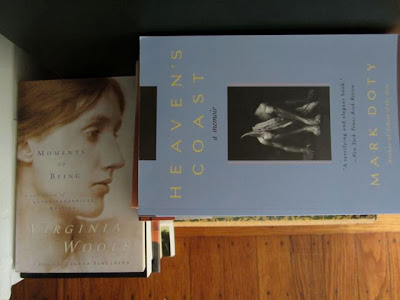I have been driving poor Ed Nawotka, editor-in-chief of
Publishing Perspectives, just a tad crazy these days. (Sorry, Ed!)
Please can we run the Vaddey Ratner interview, I've emailed.
Pretty pretty please.
My urgent requests being made despite the fact that Ratner's book,
In the Shadow of the Banyan, will not be released for a few more days.
It's just this: Ever since I saw Ratner at the BEA during the
adult buzz panel, I knew. I knew her book would be huge, and I knew Ratner (who in real life is a gorgeous petite) would be huge, as well.
Banyan, a novel based on Ratner's childhood experience during the Cambodian conflict, isn't just lush and harrowing, infused as it is with both poetry and heartache. It is moral, compassionate, and electrified by a consonant humanity. Ratner stands for something good and right in fiction making, and here's what's so cool about that: the world is noticing. Her book has wings.
(For a small excerpt from the beginning, go
here.)
Ed has given me the opportunity to interview a number of wonderful people in publishing (see the sidebar on this blog for links to former stories). I am grateful, Ed, that you gave me room for this long piece on Ratner. I asked questions by email. Ratner answered with great care. This, for example, is how the interview begins. Please read the
whole of it here. It's about life. It's about writing. It's about hope.
You returned to Cambodia after many years away
and lived for a time within your country.
Can you recreate your first moments of return? What did you look for?
What did you find? Beyond
the return to the palace and the gift of rice, how did you spend your time
there?
The first time I returned to Cambodia was in 1992, thirteen
years after our traumatic escape from the country, the whole experience still very
much fresh and alive in my mind. Indeed,
parts of the country were still controlled by the Khmer Rouge rebels. While their regime had collapsed in
1979, they hadn’t completely relinquished their grip, terrorizing the
population with random abductions and killings and launching attacks against
the government’s forces. Thus, you
can imagine how my mother felt about my decision to return at this particular
time. “I risked everything to get
you out of there,” she said, her voice taut with love, and fear for my safety. “Now, you are going back.”
The last leg of that journey, the flight from Bangkok to
Phnom Penh, I remember, was full of overseas Cambodians, all of us on this joint
return to the homeland we couldn’t forget despite our desire for a new home, or
stop loving despite the bloodshed and brutality. At our first glimpse of Cambodia from the plane—the landscape
like a tattered tapestry patched with arid rice paddies and stitched together
by the flimsy threads of rivers and lakes during the dry season—we all simultaneously
burst into tears. Only the
beautiful young Thai flight attendants remained dry-eyed and composed, as if by
now well prepared for this kind of homecoming. They did everything they could to give us our dignity, as if
the entire cabin of passengers collectively sobbing aloud was nothing out of
the ordinary. I found this particularly
kind of them, for it allowed us to express, without shame or fear, our long
withheld sorrow.
Read more...
























